Western Cape discriminates against homelearners
The Congress of South African Trade Unions (Cosatu) and the Department of Education in the Western Cape (WCED) had a meeting, and came to an agreement that equality is the key cornerstone of education. This means that “… black and white, rich and poor kids have the same levels of education so that they can have the same pass rates.” Head of the department Penny Vinjevolt confirms that the provincial Department of Education “… will continue to provide quality education for all children.”
The WCED wants to ensure that all learners achieve the same levels of education, by providing all learners with exactly the same “quality education”. This “quality education” refers to the uniform education that is provided in public schools, where learners are divided in peer groups, education is provided by unionised teachers, using a single standard curriculum from the National Department of Education, using a single language, paid for with tax money and with almost no parental involvement.
The assumption that learners will achieve the same outcome when given the same input, can only be true if all learners are the same. However, if learners are not the same, providing all learners with the same input, will cause a variety of outcomes, resulting in inequality. Every parent knows that children are not the same. Every teacher knows that children are not the same. However, the WCED uses the flawed assumption that children are the same, to justify a one size fits all education, and in this way promotes inequality.
As an example, there is consensus in education research that a Xhosa first language learner will not achieve the same educational outcome as a first language English learner, if all education is provided in an English medium. In this situation, the Xhosa learner is like somebody that attempts to climb the stairs of the Cape Town City hall in a wheelchair. Such a person needs much more help than others to climb the stairs. The Department of Education acknowledges this, by giving extra marks to learners that are not first language English or Afrikaans speakers.
If the WCED is really serious about striving towards better equality in educational outcomes, it will make it possible for Xhosa first language learners to receive their education and write their exams in their mother tongue. Giving extra marks does not make the educational outcomes equal, it merely hides the fact that they are not equal.
A form of education that is very suitable for promoting equality, is homeschooling. Research has shown over and over again that home learners achieve the same education outcomes, regardless of the qualifications or the income of the parents. If the WCED is really committed to equality, one would expect that the WCED would promote homeschooling in the Western Cape.
The actions of the WCED however indicate that the opposite is the case. On 9 August 2012 the Western Cape Education Department published a notice on homeschooling. According to this notice the curriculum to be followed must be in line with the National Curriculum. If the WCED prescribes a curriculum, parents are limited to adapt the education to the needs of each individual child, in order to ensure that each child can develop it’s potential. Does equality means that children should not be allowed to reach their potential?
The notice also states that learners from Grade 9 should be enrolled at a school. If the WCED is committed to equality, why are homelearners not allowed to do Gr.10 – 12 and achieve the same levels of education as learners in schools?
The WCED claims to be committed to equal education. In practise however, they promote educational forms that promote inequality and discriminate against learners that make use of other forms of education. According to the South African Constitution, equal education means that learners should be allowed to achieve the same educational outcomes. Since the WCED does not allow this, it implies that apart from being discriminatory, the actions of the WCED are also unconstitutional.

Legal & Research
Centres
Homeschool ABC
Support
Curriculums
Ginini Training Institute
Ginini Academy is an EdTech home education content provider ...
LEARNING TO READ EASY WITH THE ...
Parents and educators – these popular reading books are ...
Impaq: Homeschool & Online ...
Impaq: The leading homeschooling curriculum provider in South ...
Clowder Bookstore for Homeschool ...
Explore The Clowder Bookstore. Our primary focus is on ...
Has no content to show!









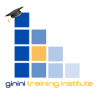
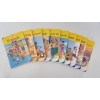
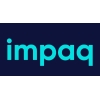
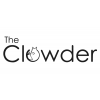






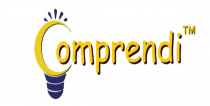













Comments 2
Die belangrikheid van moedertaalonderwys word weereens bevestig in die media. Child Magazine berig : "Dit is boonop bewys dat Afrikaanssprekende kinders wat in hul moedertaal onderrig word, beter vaar op skool as kinders wat in Engels onderrig word, ...”
THE Eastern Cape education department has taken the first step towards implementing the official use of mother-tongue language to teach maths and science in a bid to improve results. More than 70 primary schools in the district performed well, scoring more than 80% during the Annual National Assessment (ANA) this year.